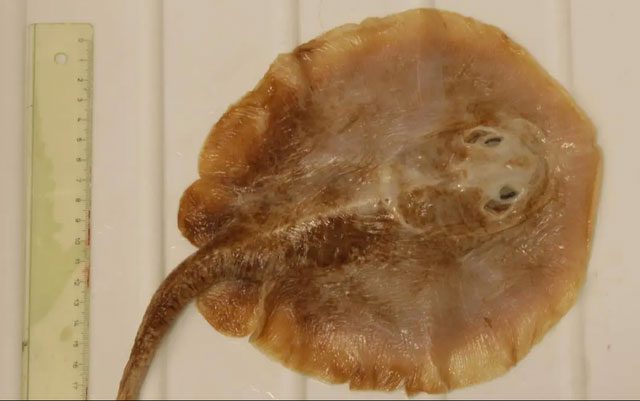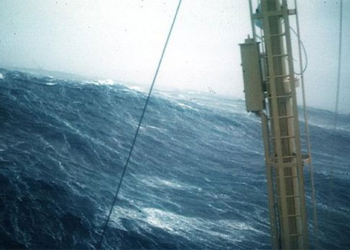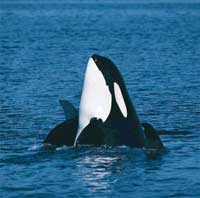The International Union for Conservation of Nature (IUCN) has just announced that a mysterious creature in Indonesia has become the first marine fish species to go extinct due to human activity.
The species, known scientifically as Urolophus javanicus, is commonly referred to as the Java stingray or Java thorny ray.
This news, described by scientists as a “shocking wake-up call,” was released by the IUCN in its latest update to the Red List – the international version of the IUCN’s conservation status report.

“Mystery creature,” found only in Southeast Asia, has been declared extinct due to human activity – (Photo: BERLIN MUSEUM).
Conservation biologist Julia Constance from Charles Darwin University (Australia) noted that this unique species is the size of a dinner plate and was first identified through a specimen collected at a fish market in Jakarta, Indonesia, in 1862.
Since then, it has remained a mysterious species.
The Java stingray population has long been critically endangered due to high-intensity fishing practices, which have sometimes been poorly regulated, leading to a decline in their numbers since the 1870s.
The Java Sea, where this species was declared extinct due to human activity, is an area that has been heavily industrialized, resulting in environmental degradation.
The impacts are assessed as “severe enough to unfortunately cause the extinction of this species.”
According to this update, a quarter of all freshwater fish species are currently classified as “at risk of extinction,” with 20% directly affected by climate change.
The Red List now contains at least 120 marine fish species at risk of extinction.
In addition to the species in Java, the Tasmanian stingray (Zearaja maugeana), dubbed a “living fossil” due to its millions of years of lineage, is also nearing extinction as changes in water flow from Atlantic salmon farming near its habitat have reduced its population to fewer than 1,000 individuals.
Moreover, many freshwater fish species are also “on the brink” of extinction according to the current list.
The publication Science Alert quoted Kathy Hughes, co-chair of the IUCN’s Freshwater Fish Specialist Group, stating that freshwater fish now represent over half of all known fish species worldwide, a bewildering diversity considering freshwater ecosystems only account for 1% of aquatic habitats.
This diverse group of species is essential for the ecosystem and is critical for the overall resilience of that ecosystem, with severe implications if they go extinct.





















































